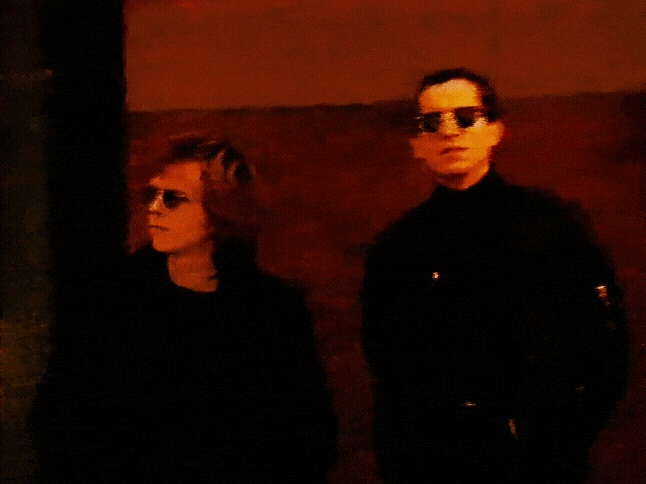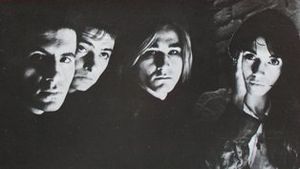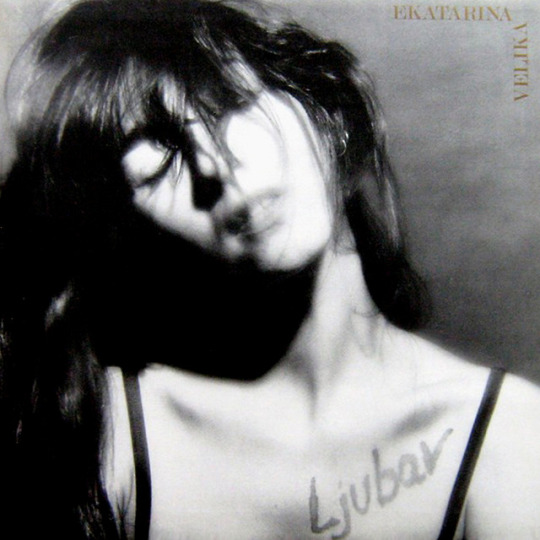#bojan pečar
Text










vetar misli, vetar zna, sve što znamo ti i ja
KRUG - Ekatarina Velika
#ekatarina velika#milan mladenović#margita stefanović#bojan pečar#srđan žika todorović#mine 🧫#magi is LITERALLY me. this is how i dress this is how i move. freakyyyyy#jo-core#target audience: me#ex-yu rock#ex-yu#ekv
13 notes
·
View notes
Text

#art#artists on tumblr#drawing#sketch#my art#artwork#artist#sketchbook#арт#traditional art#EKV#Ekatarina Velika#Margita Stefanović#Milan Mladenović#Bojan Pečar#Serbian rock#Yugoslav rock#Рисунок#Арт#Набросок#Скетч#Скетчбук#Портрет#Рок#🇷🇸#pencil sketch#portrait drawing#bw portrait#ex yu rock#ex yugoslavia
27 notes
·
View notes
Text

“Ja sam – ćutolog! Evo kad sam se već raspričao mogao bih da poručim, recimo, ovo: Svi vi mladi, dobro otvorite oči, pogledajte šta se dešava i kod nas i u svetu, i dobro razmislite da biste mogli da napravite pravi izbor. Pogrešan izbor može da bude koban po jedinku. A da bi ste napravili pravi izbor morate mnogo toga da znate. Prema tome, učite deco, volite se i budite pametni, ne podpadajte ni pod kakve uticaje...
Voli vas ćutolog, Bojan Pečar!”
#Bojan Pecar#Bojan Pečar#Ex Yu#Ekatarina Velika#EKV#VIA Talas#Srbija#Hrvatska#Bosna i Hercegovina#Slovenija#Makedonija#Crna Gora#BiH#Balkan#my post
13 notes
·
View notes
Text


34 notes
·
View notes
Photo

,,Rokernol nije i nikad neće biti samo razigrana, svetla, bezbolna i vesela strana sveta na kojoj odrastaju generacije. Rokenrol je mnogo više - nešto što se treba živeti, osetiti...u srcu, u duši, u glavi. Celim svojim telom i svojim duhom trebaš mu se predati...”
Bojan Pečar
94 notes
·
View notes
Text

Bojan Pečar rođen je 22. marta 1960. godine...
5 notes
·
View notes
Photo

Bojan Pečar, Milan Mladenović, Margita Stefanović (EKV)
Foto: Miladin Jeličić Jela
#ekv#ekatarina velika#miladin jelicic jela#milan mladenovic#bojan pecar#margita stefanovic#magi#novi talas#new wave#serbian new wave#ex yu new wave#novi val
83 notes
·
View notes
Photo




(From Top to Bottom)
Margita “Magi” Stefanović
Bojan Pečar
Milan Mladenović
Ivan “Raka” Ranković
#ekv#ekatarina velika#margita stefanovic#bojan pecar#milan mladenovic#ivan rankovic#raka#from the kao da je bilo nekad documentary#the whole squad#my gifs
26 notes
·
View notes
Text
EKV

Ekatarina Velika was a Yugoslav rock band, more specifically, established in Belgrade, Serbia in 1982. The group is generally called EKV, and the English version of the name would be ''Catherine the Great''.
The band consisted of three main members:
Milan Mladenović - frontman;
Margita Stefanović - keyboardist;
Bojan Pečar - bassist.
There were other member as well, such as Ivan Vdović VD and Srđan Todorović, who is also an actor. However, most of the other members did not stick around for a long time.
youtube
Within 10 years, all members of the group died young and in a tragic way. However, the group dissolved after its frontman died. Milan Mladenović was only 36 when he died of pancreatic cancer.
Ivan Vdović, the band's drummer was the first registered person in former Yugoslavia that was HIV/AIDS positive. He died when he was only 31. The bassist, Bojan Pečar was a drug addict (like other members), but the official cause of his death was a heart attack.
Special attention needs to be devoted to the band's only female member: Margita Stefanović Magi. She was an icon of the entire region. She was called The Rock Princess or The Black Angel, and her music did not leave anyone indifferent. She started her music career as a pianist and playing classical music. Somehow, she ended up in an underground rock band and stayed there until the very end. Even though her music brought joy to many hearts, her life was not all that bright. After her father's death, Magi became a drug addict. She tried to rehabilitate, but failed each time. She sold two apartments and ended up homeless. She died at 43 and the cause of her death was intravenous use of HIV-infected drugs.
youtube
The band's tragic destiny makes their music even more interesting, because it creates a dark atmosphere that goes perfectly with their songs. EKV's legacy will remain forever.
0 notes
Photo

Why You Should Listen to: Ekatarina Velika's ‘Ljubav’
Daniel Lester
November 14, 2018
Welcome to the weekly-series “Why You Should Listen to”, where we will discuss great albums worth every music lover’s attention. In today’s society, while we do have all the possible access to everything and anything on the Internet, it can often happen for us to miss some music we would love to hear. That’s why, every Monday, we will try to help you discover some awesome music in this series of articles. The focus will mostly be on studio albums, be it classics or underrated gems and records that have been forgotten by time. Our focus will also stretch out across the world, from the USA and UK to the African continent, Latin America and even the Balkans. Today, we’ll talk about the legendary ex-Yugoslav band Ekatarina Velika (Ecatherine the Great) and their classic album "Ljubav" ("Love"). NOTE: Since this album is not in English, the translations will most likely be literal and possibly inaccurate at certain points.
The 1970s and 1980s new wave movement may have originated in the UK and US, but it quickly spread all over the world and influenced countless bands from many different countries. It also reached the now-defunct country of Yugoslavia (or as it was fully named the Socialistic Federative Republic of Yugoslavia), which was going through many changes at that time, which would ultimately lead to its demise.
The ex-Yugoslav pop culture was quite influenced by what was going on in the UK and US at the time. In the 1970s, the predominant genre was hard rock fused with some traditional elements, dubbed "shepherd rock", a sound created and popularized by the, arguably, most popular ex-Yugoslav band Bijelo Dugme (White Button). While it had a gigantic following, the younger generations wanted to rebel against the primitive sound and silly themes of that genre. The emergence of punk and new wave gave many young bands from the former Yugoslav countries a new theme and a new idea of what kind of sound should be popular.
With new wave came many great bands such as the iconic band Idoli (Idols) and many pivotal releases, one of them being the highly lauded new wave compilation album "Paket Aranžman" ("Package Deal"), often considered the best former Yugoslav album. On that compilation, one could hear the cult band Šarlo Akrobata (Charlot the Acrobat, which was how Yugoslav people referred to Charlie Chaplin), the band that would lead to the formation of Ekatarina Velika. It was a young new wave band of rebels Dušan Kojić "Koja" (who would later on form his own influential band Disciplina Kičme), Ivan Vdović "Vd" and Milan Mladenović (who would later on become the founding member and frontman of Ekatarina Velika). After their incredible and critically acclaimed debut album, the band fell apart in 1981 and the members went their own separate ways.
Milan and Vd would become part of a new band known as Katarina II with Milan's guitarist friend and band co-founder Dragan Mihajlović "Gagi". Between 1981 and 1984, many line-up changes occured and the band's final core line-up consisted of Milan Mladenović (guitar, lead vocals), classically trained pianist Margita Stefanović "Magi" (keyboards, vocals), Bojan Pečar (bass), with the drummers constantly changing. In 1984 they released their debut as Katarina II, an album that did not reach a wide audience. After a name change to Ekatarina Velika (further referred to as "EKV", as fans of the band liked to call them), the band's next two albums would bring them a dedicated fanbase and critical acclaim, but also some rivalries with other post-punk and new wave bands of the time.
EKV is often compared to the likes of Joy Division, The Cure and Talking Heads. They reagrded themselves more as a European band, rather than a Serbian band and were influenced by the likes of Elvis Costello, XTC and Joe Jackson.

from left to right: Bojan, Milan, Magi and drummer at the time Ivan Ranković "Raka"
Since EKV is not a very well-known band around the world, it might be appropriate to introduce the band, in the line-up that recorded their fourth studio album "Ljubav" ("Love"), as we will talk about it in detail.
Milan Mladenović (1958 - 1994) - legendary frontman of the band, who was also the guitarist and main lyricist of the band. He was known for his deep and cryptic lyrics, strong moral values, recognizable and powerful voice that could emit the most blood-curdling and banshee-like shrieks and screams, but also some very smooth and emotive vocals, as well as minimalistic, but integral guitar-playing. While he spent most of his life in Belgrade, he also lived in Zagreb and Sarajevo in his childhood, due to his father's military obligations, which gave Milan a strong connection to his Yugoslav identity. He died of pancreatic cancer in 1994.
Margita Stefanović (a.k.a. "Magi") (1959 - 2002) - the second most-known band member, known for her fantastic musicianship and anthemic synth and piano lines. She was loved by fans and bandmates alike, and recognized as a kind and unique spirit. She appears on the front cover of the album. Magi died after being diagnosed as HIV positive, due to intravenuous drug use.
Bojan Pečar (1960 - 1998) - was known for his incredible bass guitar skills and iconic basslines. He was a very proficient musician and contributed to the grooves and dynamics of the band's music. He is remembered as the third core member of the band, despite leaving the band in 1989 to move to London, where he also died of a heart attack in 1998.
Srđan Todorović (a.k.a. "Žika") (born 1965) - was the band's drummer at the time, and is one of their most well-known members. His primary career is in acting, and is one of the most famous ex-Yugoslav actors, who is still active today.
The album "Ljubav" was the band's fourth album. It came after the band's sophomore album "S' Vetrom Uz Lice" ("With the Wind Against My Face") that gave them the necessary and well-deserved mainstream attention in Yugoslavia. While some critics accused them of "selling out", fans approved of their success and continued to support them throughout.
The recording of the album started in the summer of 1987, and was completed in one month. It was produced by Australian gutarist Theodore Yanni, and carried the band's signature new-wave and post-punk sound to new heights.
youtube
The opening track, and also one of their most well-known, is "Zemlja" ("Land"). It is a song driven by a flanged guitar playing a very anthemic and repetitive riff, while the bass and drums carry the groove and set the foundation for Milan's voice and lyrics. Magi's keyboard playing is present, but is a bit more subdued on this track. Milan's lyrics seem to symbolize unity, brotherhood and love, making this song one of the more brighter cuts in the band's often dark discography.

The title track is also a fan-favorite, opening with a punchy and loud drumbeat that welcomes the rest of the energetic instrumentation, in the form of the ever-dynamic bass and quite punkish guitar riffs. Magi's synth lines add a light melody that makes the energetic track more refined and help Milan delve into the topic of love not being as its advertised to us. Lines such as "I boli, i boli, i boli/Boli nas ljubav" (And it hurts, and it hurts, and it hurts/Love hurts us) or "Uz lažni smeh/I naše reči od milja su navika/I naša imena od milja su navika" ("With fake laughs/And our nice words are just a habit/And our sweet nicknames are just a habit"), clearly paint Milan's idea of love as being just a habit, rather than a true and constant feeling, meaning that relationships aren't always pure and genuine as we want them to be. The vocal harmonies in the chorus make this energetic, yet bittersweet track all the more worthy of listening.
youtube
0 notes
Photo

#bojan pečar#ekv#ekaterina velika#ex yu#rock#music#bass player#art#photoshoot#beautiful#Body Painting
8 notes
·
View notes
Text
love it when a guy is locust coded. this is about bassists btw.
#this is about bojan pečar mainly everybody be quiet. also i announced this publicly earlier. loudly.#jo in the tardis*
13 notes
·
View notes
Text

Ekv
#ekv#ekatarina velika#milan mladenović#margita#bojan pečar#ex yu rock#rock n roll#rokenrol#rock#ex yugoslavia#jugoslavija#ex yurock#ex yu ro#zika todorovic
428 notes
·
View notes
Text
Krug (EKV Tribute) u Nišu: Karte u prodaji
Krug (EKV Tribute) u Nišu: Karte u prodaji
Grupa Krug – Oficijelni Tribute to EKV band iz Beograda sačinjen od bivših članova EKV i njihovih prijatelja iz generacijski sličnih bendova u okviru predstojeće mini turneje u regionu nastupiće i u Nišu, u klubu Feedback u petak, 14. novembra.
(more…)
View On WordPress
#Bojan Pečar#Dejan Tomović#Dragiša Uskoković Ćima#Ekatarina Velika#EKV#Feedback#Ivica Vdović#Krug#Margita Stefanović#Marko Milivojević#Milan Mladenović#Nemanja Dašić#Tanja Jovićević#Tribute to EKV
0 notes
Photo

Bojan Pečar, Ekv
Foto: Zoran Trbović
#ekv#ekatarina velika#bojan pecar#zoran trbovic#novi talas#novi val#new wave#ex yu new wave#serbian new wave
43 notes
·
View notes
Video
youtube
nedostatak talenta, nedostatak mašte, nedostatak svežih ideja
2 notes
·
View notes